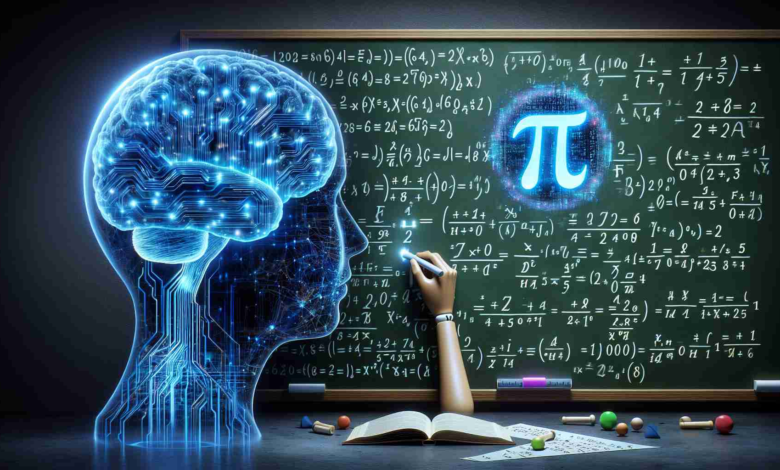Artificial Intelligence Outperforms Humans in Advanced Mathematical Problem-Solving

In a remarkable display of artificial intelligence’s advancements, Google DeepMind’s AI has outclassed human mathematicians by providing an improved solution to the complex cap set problem. This problem, a formidable challenge in pure mathematics, involves identifying the largest collection of points in a space arranged such that no trio form a straight line. The breakthrough evidences that AI’s capability in sophisticated reasoning has reached impressive heights, tackling intricate geometry and offering novel insights into solving longstanding mathematical issues.
The recent success story of Google DeepMind’s AI has prompted a reevaluation of the potential for AI in the realm of mathematics. This field, traditionally seen as a bastion of human intellectual achievement, is now witnessing the emergence of machines that not only comprehend complex concepts but also contribute to expanding our understanding of them. As AI continues to excel in areas once dominated by human cognition, the discussion shifts towards the possibility of artificial general intelligence, a form of AI that can match or surpass human performance across a broad spectrum of tasks.
This technological leap forward suggests that artificial intelligence is not only becoming increasingly adept at mimicking human-like reasoning but is also forging its path in domains that require deep analytical thought. With experts like Alex Davies from DeepMind noting the foundational role of mathematics in reasoning, these developments signal an exciting and perhaps transformative phase in both AI and mathematical research, pointing towards a future where AI partnerships could significantly accelerate problem-solving and innovation.
In an impressive fusion of computational power and intellectual prowess, Google DeepMind’s AI has redefined the boundaries of mathematical prowess with its novel solution to the cap set problem. This complex conundrum, deeply rooted in the field of combinatory mathematics, is known for its intricate arrangement challenge: finding the maximum number of points on a grid that avoids the alignment of any three points in a straight line.
The industry of artificial intelligence has been making significant strides in solving problems that were once the exclusive domain of human intellect. DeepMind’s achievement is particularly noteworthy as it marks a confluence of advanced AI and pure mathematics, areas that are crucial for the development of high-level reasoning and problem-solving capabilities in machines.
The market forecasts for AI are exceedingly optimistic, with various analysts predicting the global artificial intelligence market to grow exponentially within the next decade. This growth is driven by AI’s expanding application in fields such as healthcare, finance, automotive, and particularly in research and development sectors that rely on complex problem-solving.
Despite the advancements and positive outlook, the AI industry does face notable issues and challenges. Ethical considerations such as data privacy, the potential for job displacement, biases encoded within AI algorithms, and the control of intelligent machines are among the pressing concerns needing robust solutions. Furthermore, the partnership between AI and human experts raises questions about the future role of humans in a landscape increasingly dominated by machine intelligence.
As we ponder the implications of DeepMind’s AI in reshaping the frontiers of mathematics, it is essential to ensure that AI’s evolution benefits society at large. To find out more about the latest developments in AI and its impact across industries, visit the DeepMind website or the Google website for more information on their innovative projects.
In conclusion, the integration of AI in the realm of mathematical problem-solving does not only highlight its current capabilities but also sets a foundation for a future where complex challenges across various domains may be addressed with unprecedented speed and efficiency. Thereby, it opens up the tantalizing potential for artificial general intelligence that could partner with and even enhance human ingenuity.

Roman Perkowski is a distinguished name in the field of space exploration technology, specifically known for his work on propulsion systems for interplanetary travel. His innovative research and designs have been crucial in advancing the efficiency and reliability of spacecraft engines. Perkowski’s contributions are particularly significant in the development of sustainable and powerful propulsion methods, which are vital for long-duration space missions. His work not only pushes the boundaries of current space travel capabilities but also inspires future generations of scientists and engineers in the quest to explore the far reaches of our solar system and beyond.



